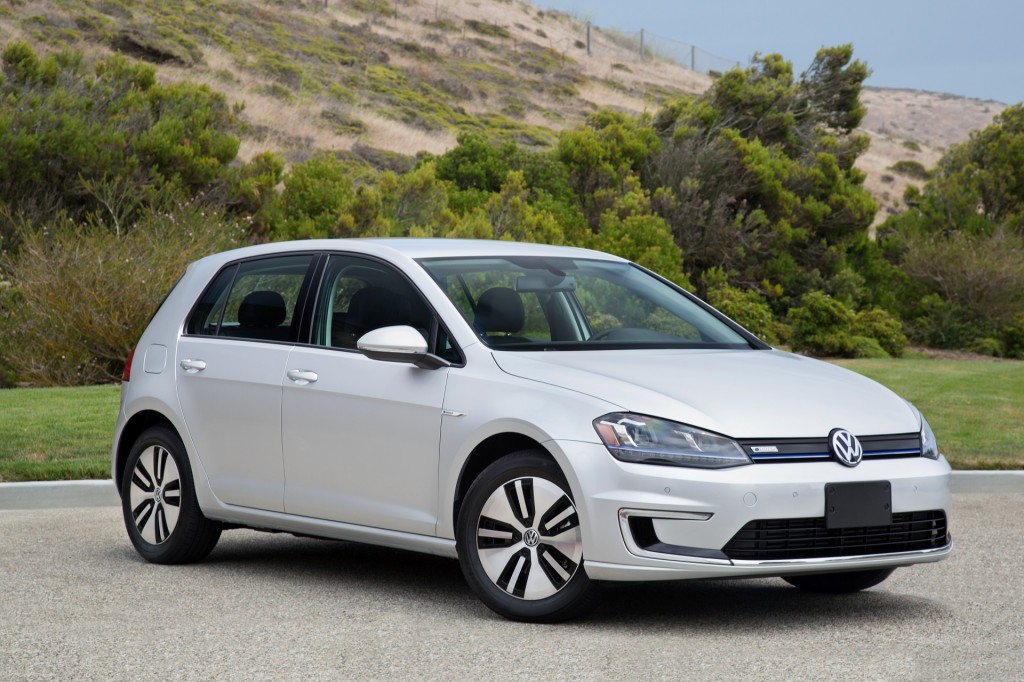Even though a settlement covering almost half a million 2.0-liter 4-cylinder TDI cars that were the main focus of the Volkswagen diesel scandal was approved by a federal judge, questions remain.
The settlement includes a provision that requires VW to commit $2 billion in funds to install charging or fueling infrastructure for zero-emission vehicles.
And it appears a debate over how those funds should be managed is heating up.
DON'T MISS: Battle over VW's $2 billion fund for electric-car charging: sorting out the questions
In a recent letter to the Environmental Protection Agency (EPA), two Congressmen questioned whether the funds should have been included in the settlement at all.
Echoing arguments made by at least one charging-network operator, Representatives Fred Upton [R-MI] and Tim Murphy [R-PA] argued that the provision could negatively affect the competitive state of the electric-car market, reports The Detroit News.
"VW may be able to obtain substantial competitive benefits, if not a monopoly on electric vehicle infrastructure," the Congressmen wrote.

2017 Volkswagen e-Golf
The required investment could hand Volkswagen a competitive advantage as it works to launch more electric cars, they suggested.
They see the $2 billion not as a penalty, or a way to alleviate the damage done by excessive emissions from diesel cars with illegal "defeat device" software.
Instead, they view the infrastructure funding as an investment in Volkswagen's own attempts to promote electric cars.
ALSO SEE: Final VW diesel settlement signed; buyback offers to start soon
VW Group says it now plans to introduce 30 battery-electric vehicles across its multiple brands by 2025.
While that's a large number of models, it echoes plans—some announced, others only rumored—from most of the world's large carmakers to launch more battery-electric vehicles with at least 200 miles of range.
In the letter, Upton and Murphy gave the EPA a November 15 deadline to answer 21 questions about the zero-emission vehicle funding.
![2014 BMW i3 REx fast-charging at Chargepoint site, June 2016 [photo: Tom Moloughney] 2014 BMW i3 REx fast-charging at Chargepoint site, June 2016 [photo: Tom Moloughney]](https://images.hgmsites.net/lrg/2014-bmw-i3-rex-fast-charging-at-chargepoint-site-june-2016-photo-tom-moloughney_100557788_l.jpg)
2014 BMW i3 REx fast-charging at Chargepoint site, June 2016 [photo: Tom Moloughney]
These include questions on what measures the federal and state governments will take to ensure that the funding "does not undermine competition in the marketplace" or give Volkswagen an unfair competitive advantage.
As well as the two Congressmen, electric-car advocates and the charging-network operator ChargePoint have expressed concerns over how the funds should be used and how they should be administered.
MORE: Electric cars will require 10,000-plus job cuts at VW, says HR chief
ChargePoint filed an amicus brief to prevent approval of the overall Volkswagen settlement without changes to the language of the sections that govern that $2 billion fund.
The judge accepted the brief, but approved the settlement as written.
Other advocates have questioned why VW should be allowed to administer the infrastructure plan, and to own the charging stations it will fund, as specified in the settlement.
_______________________________________________











